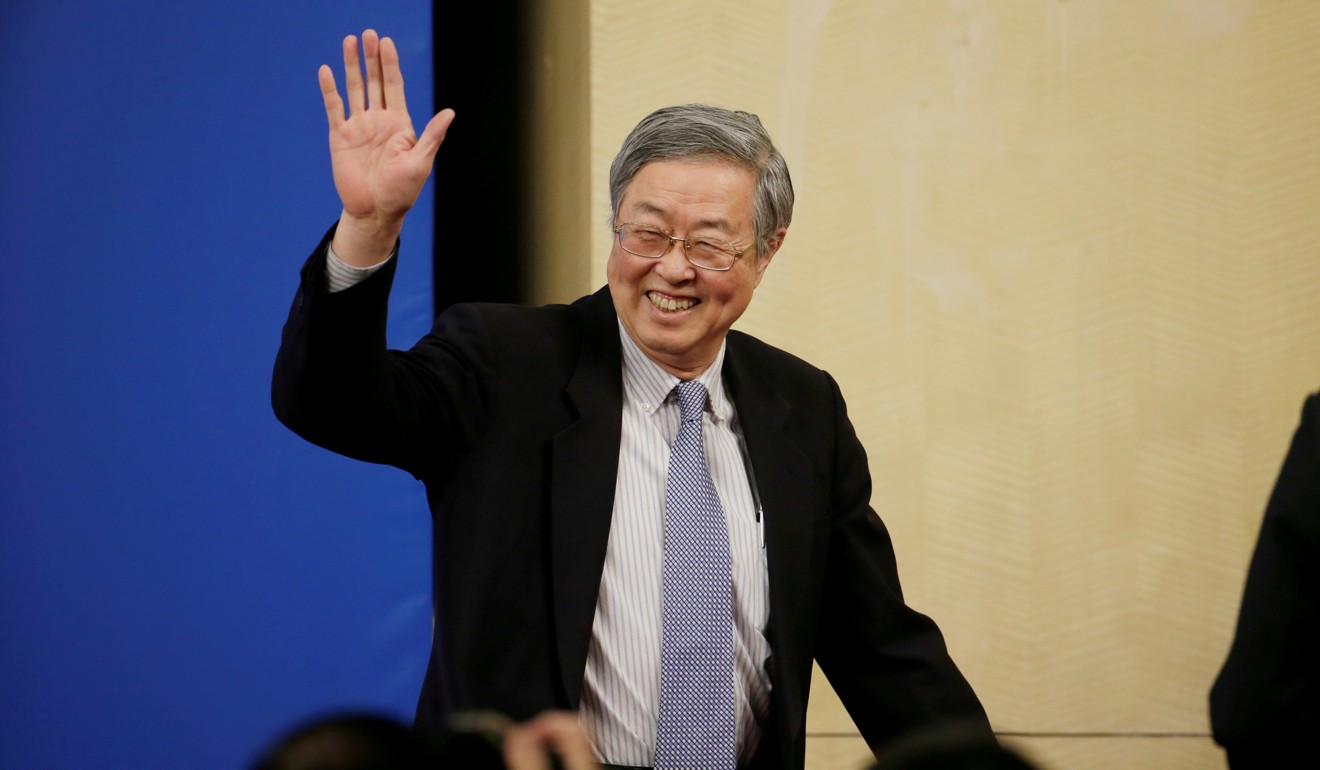
Why China’s central bank is taking a different path from the Fed on interest rates
Beijing is holding off on an interbank rate rise as it focuses on bigger priorities at home
When China’s former central bank governor, the incumbent governor and the country’s top financial regulator addressed a room of bankers and government officials at a large forum in Shanghai on Thursday, they did not mention the biggest talking point for the global financial community: the US Federal Reserve’s hawkish decision on interest rates.
Zhou Xiaochuan, who was the People’s Bank of China (PBOC) chief for over 15 years until March, reviewed lessons from the global financial crisis a decade ago. Yi Gang, Zhou’s successor at the central bank, talked about plans to make Shanghai an international finance centre, while Guo Shuqing, chairman of the China Banking and Insurance Regulatory Commission, focused on domestic financial risk control.
Their muted response to the Fed’s rate rise was accompanied by the PBOC decision – hours after the Fed move – to keep rates for interbank loans unchanged. The rates, namely rates for seven-day and 28-day reverse repurchase agreements, are not officially China’s policy rates, but by holding them steady Beijing sends a message that it is on a different path from the Fed.

Analysts said that the room for the PBOC to follow its US counterpart was shrinking as China’s growth lost steam quickly and debt repayment pressure for Chinese companies was mounting.
“The fact that they didn’t follow the Fed is already a signal,” Alicia Garcia Herrero, chief economist for Asia-Pacific at Natixis, said at a briefing in Hong Kong on Friday. “I don’t think the PBOC is ready to see additional increases in the cost of funding [in light of the country’s debts].”
Nomura Securities economists led by Lu Ting wrote in a note that, instead of tightening, Beijing has chosen to soften its stance on deleveraging and has introduced moderate policy easing in the face of a “domestic slowdown that has been worse than expected and the potential fallout of a trade war”.
US President Donald Trump has reportedly approved tariffs on Chinese goods worth about US$50 billion, ratcheting up a confrontation on trade that’s set to prompt retaliation from Beijing.
China’s economic performance in May decelerated significantly as Beijing’s efforts to cut leverage began to bite investment activities and even consumer spending.
Retail sales, a key measure of consumer spending, rose by just 8.5 per cent year on year in May, their slowest rate since June 2003, while fixed-asset investment – the single biggest driver of the world’s second-largest economy – increased by 6.1 per cent year on year in the first five months, the slowest rise of any period since records began in 1998.
A key underlying factor was the drying up of credit supply. China’s national aggregate finance, the broadest measure of credit, plunged to 760.8 billion yuan (US$118.9 billion) in May, almost half the level in April, as Beijing continued to target shadow banking activities.
Liang Hong, chief economist of China International Capital, said the priority for China’s central bank was to ensure there was sufficient and cheap funding to keep growth on track.
“Monetary policy will mainly be based on the need for domestic macroeconomic adjustment, while the interest rate gap with the US will become less important on its agenda,” Liang wrote in a research note.
If the interest rate level in the US rises and in China stays unchanged, in theory it will encourage capital outflows to undermine China’s financial stability. However, Beijing has opted for strict capital account controls over outbound payment to discourage outflows.
Iris Pang, chief China economist at ING, said a small increase in the policy rate to catch up with the Fed “won’t help the economy”.
Beijing is not happy about the financial power wielded by the US in global markets. China has also made little progress with its efforts to undermine the US dollar’s role as a global anchor currency.
As central bank chief in 2009, Zhou shocked the world by calling for the creation of a “super sovereign” currency to replace the US dollar in the international monetary system, and he said on Thursday that emerging markets were still at the whim of the Fed’s policies.
Zhou said that while there had been many debates over the years on this issue, little had been done and US policy changes could continue to make financial trouble for other countries, citing Argentina and Turkey where there are abnormal capital flows again.


